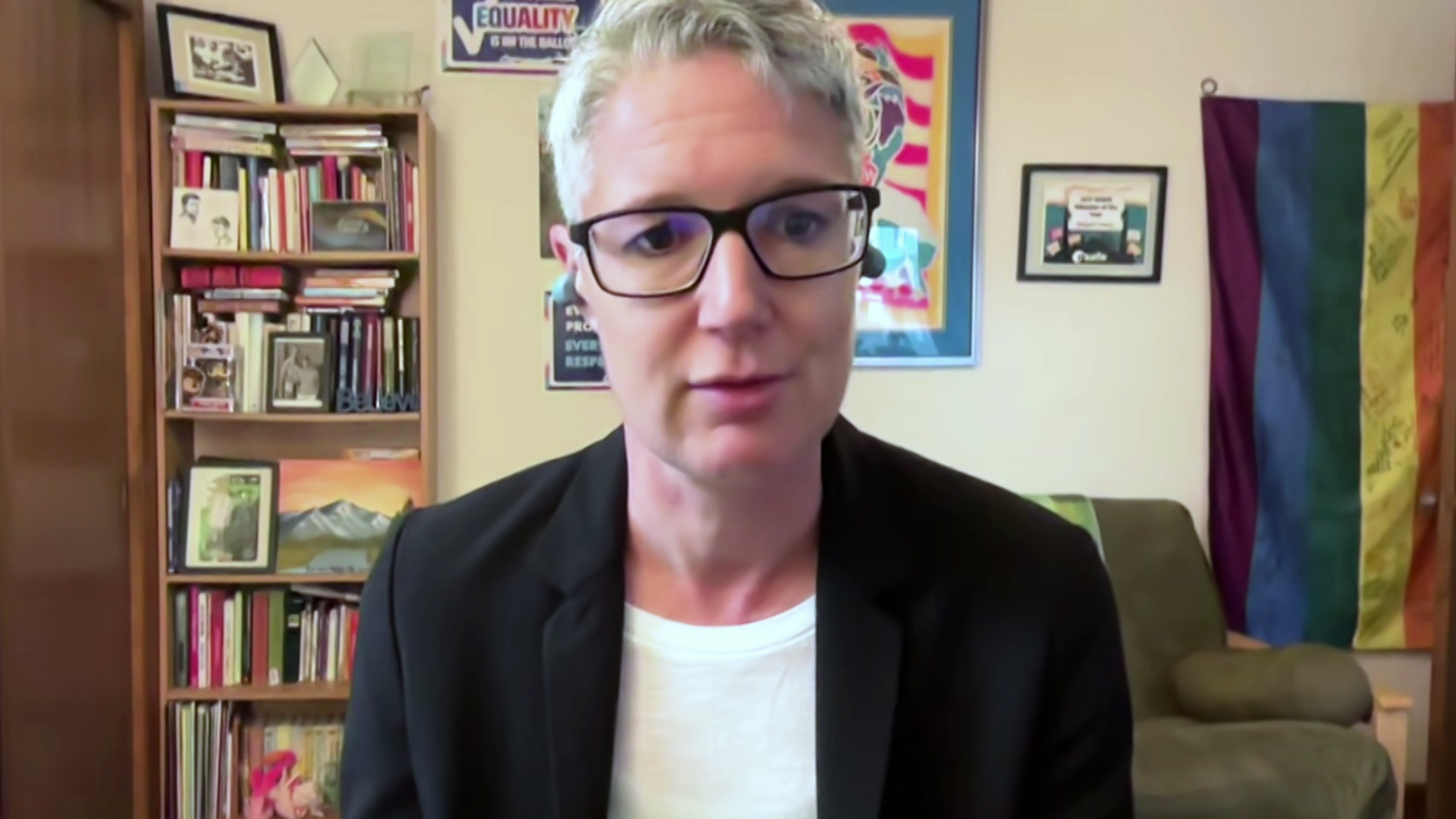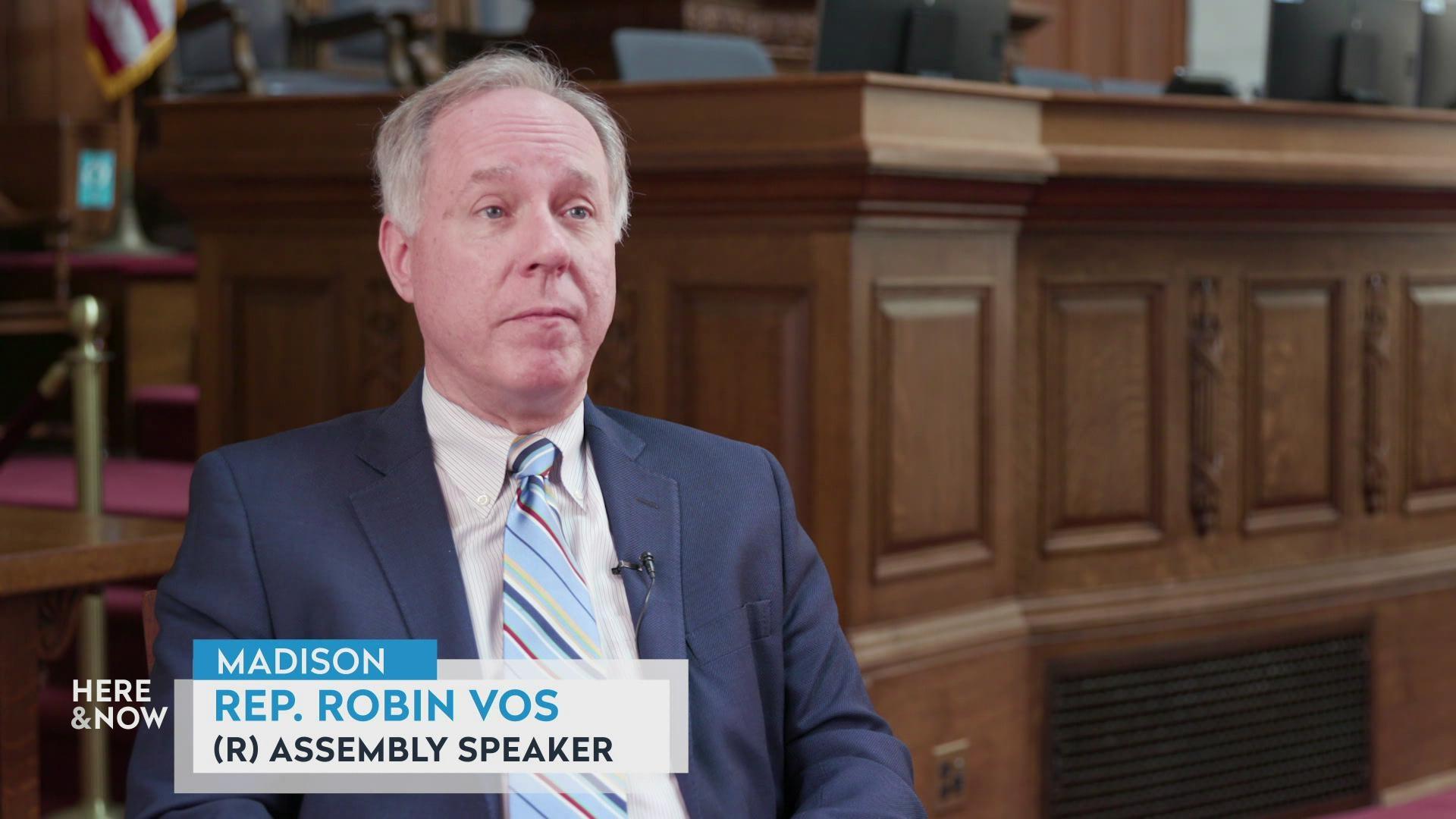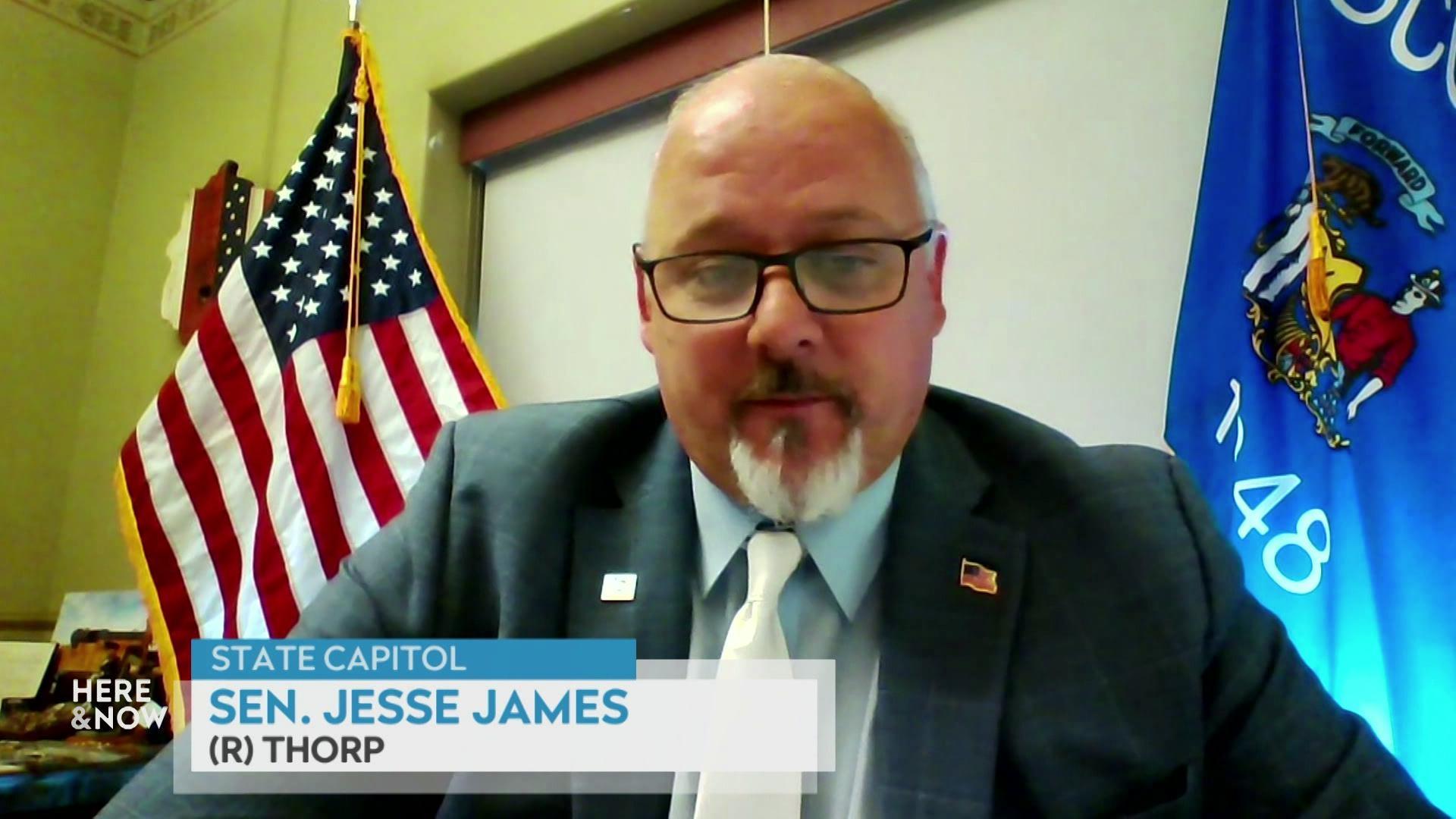Watertown adopts more restrictive transgender student rules
The politics of sex and gender were at the center of community controversy in Watertown as its school board adopted a more restrictive gender support plan, changing rules for transgender students.
By Aditi Debnath | Here & Now
November 22, 2024 • Southeast Region
It was a packed house at Riverside Middle School on Nov. 18 as the Watertown school board voted on a new “Gender Support Plan” that significantly changes policies for transgender students.
The meeting drew hundreds of attendees, with the cafeteria and a secondary overflow room filled to capacity.
Many in the audience held signs reading “Vote C,” urging the board to adopt the more restrictive option C plan. That’s exactly what they did, with Board President David Schroeder explaining the decision
“My goal is to protect the district and to protect the kids,” said Schroeder.
The new plan requires students to use bathrooms and participate in sports based on their gender assigned at birth. Board Clerk Tina Johnson was the only member to vote against option C, praising the previous policies that defer to the students’ preferences.
“The administration and staff have done a great job in working with all students. They’ve done a great job with the transgender guidelines. And I will continue to support them,” Johnson said.
Gender support plans, which can be more restrictive, like the one passed in Watertown, or more inclusive, are not new to Wisconsin schools.
Abigail Swetz, executive director of the LGBTQ+ civil rights organization Fair Wisconsin, explained the group’s position.
“The best practices in a gender support plan, which many districts do have, is to ensure the safety of the child by working with the kids to figure out how to best talk to parents and then bring them into conversations,” Swetz said.

Abigail Swetz, executive director of Fair Wisconsin, discusses the organization’s stance on school gender support policies during an interview in Green Bay on Nov. 20, 2024. “The best practices in a gender support plan, which many districts do have, is to ensure the safety of the child by working with the kids to figure out how to best talk to parents and then bring them into conversations,” Swetz said. (Credit: PBS Wisconsin)
The Watertown Unified School District’s previous policy, which had been in place for eight years, allowed transgender students more flexibility, with options to use unisex restrooms or separate locker room schedules.
One Watertown student argued that the majority of her peers aren’t concerned about gender politics.
“As a student in Watertown High School, I can say with all pride that I have met very few students who are bothered by transgender students,” said Amy.
Supporters of the plan point to safety concerns.
“When you start putting men in women’s, in girls’ bathrooms that are biologically male, you’re going to have more than one lawsuit,” said Watertown resident Gene Schmidt.

Gene Schmidt, a Watertown resident, discusses the local school district’s gender support policy at a school board meeting on Nov. 18, 2024. “When you start putting men in women’s, in girls’ bathrooms that are biologically male, you’re going to have more than one lawsuit,” said Schmidt. (Credit: PBS Wisconsin)
Mollie McQuillan is a professor at the University of Wisconsin-Madison School of Education and questions the legal validity of the policy.
“I think that there’s a lot of confusion among school boards, and certainly among superintendents and principals and teachers, about what the law actually is and how they can support youth,” McQuillan said.
She said that policies like option C, aren’t legally binding due to a federal law called Title IX.
“Title IX, broadly speaking, is to prevent discrimination based on sex,” explained McQuillan.

Mollie McQuillan, an education professor at UW-Madison, discusses changes to the Watertown school district’s gender support policy on Nov. 20, 2024. “I think that there’s a lot of confusion among school boards, and certainly among superintendents and principals and teachers, about what the law actually is and how they can support youth,” McQuillan said. (Credit: PBS Wisconsin)
She said that two different U.S. Court of Appeals decisions, in 2017 and 2023, found that school policies that restrict which bathroom a student can use are not enforceable. Schroeder acknowledges that this legal status could change after President-elect Donald Trump takes office in January 2025.
“Whatever you think about the law today, in two months, it’s likely going to change,” Schroeder said.
Any change made to Title IX would take time to work its way through the political process, but gender politics are front of mind for the new presidential administration.
“I will ask Congress to pass a bill establishing that the only genders recognized by the United States government are male and female — and they are assigned at birth. The bill will also make clear that Title IX prohibits men from participating in women’s sports,” said Trump in a video dated Feb. 1, 2023.

Watertown residents gather to share their opinions on the district’s gender support plan proposals on Nov. 18, 2024, at Riverside Middle School. (Credit: PBS Wisconsin)
Swetz said that the change in presidential administration only means there’s more work for civil rights advocates to do.
“It is true that Title IX protects LGBTQ students and staff,” she said. “We have civil rights, and no matter who occupies the White House, our organizations are here to make sure those rights are respected.”
In Watertown, it’s now up to the superintendent and district staff to decide how to enforce the policy moving forward.
 Passport
Passport











Follow Us